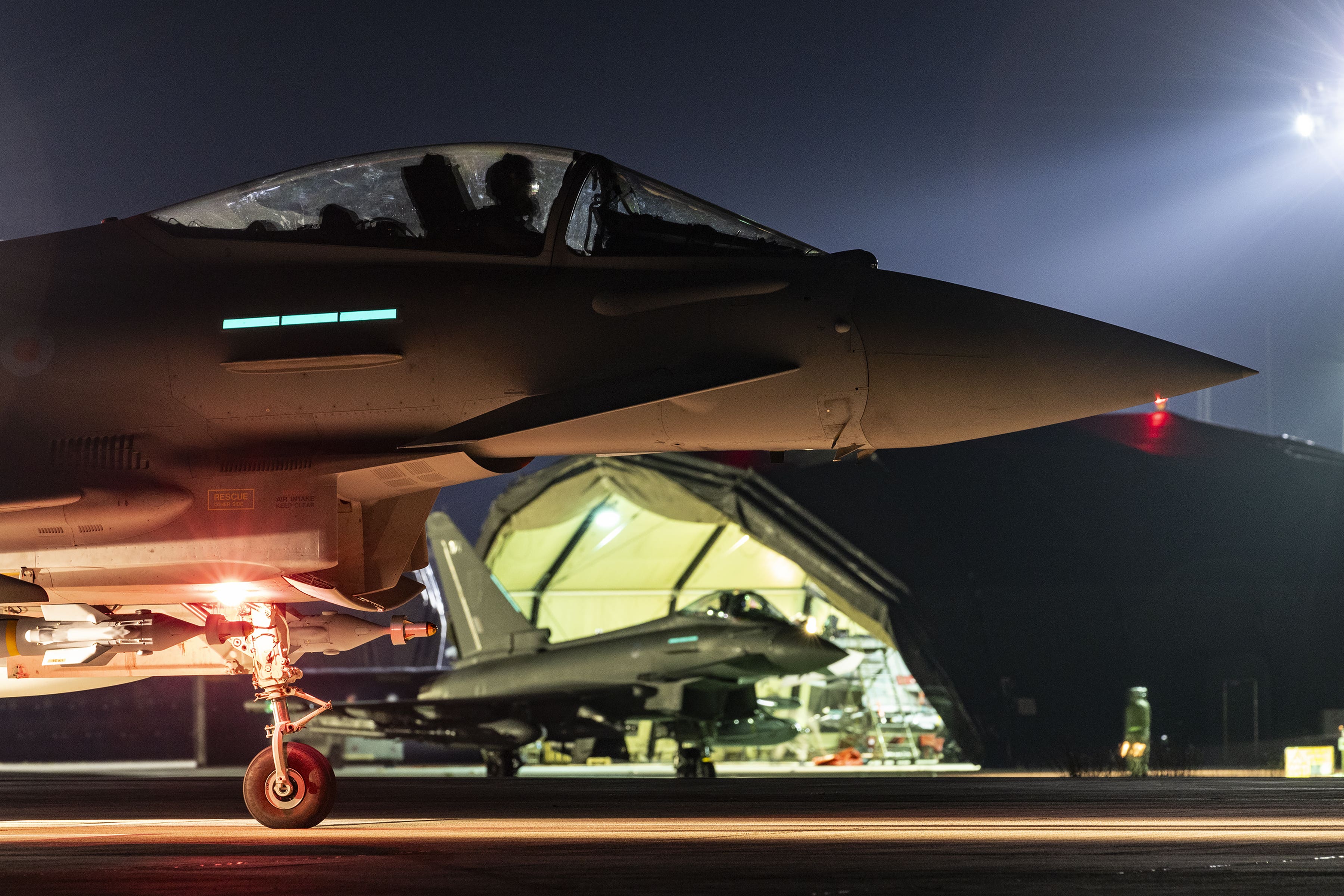UK and US launch strikes against Houthis after surge in attacks on shipping
American and British fighter jets hit sites in eight locations, according to US officials.

The UK and US have launched another round of missile strikes against Houthi targets in Yemen after a surge in attacks around the Red Sea by the Iran-backed group.
American and British fighter jets hit sites in eight locations, according to US officials.
The action was intended to degrade Houthi capabilities used to “threaten global trade, naval vessels and the lives of innocent mariners” along one of the world’s most critical waterways, a joint statement said.
Intelligence analysis had successfully identified several very long-range drones, used by the Houthis for both reconnaissance and attack missions, at one site several miles north east of Sanaa, the Ministry of Defence said.
Precision-guided bombs were used against the drones and their launchers, according to the MoD.
This is the fourth time that a joint operation has been launched against the rebel group since January 12, though the action appears to have done little to deter Houthi attacks.
The US has also been carrying out almost daily strikes to take out targets including incoming missiles and drones aimed at ships, as well as weapons that were prepared to launch.
Defence Secretary Grant Shapps said: “It is our duty to protect lives at sea and preserve freedom of navigation.
“That is why the Royal Air Force engages in a fourth round of precision strikes against Houthi military targets in Yemen.”
Mr Shapps said it came after “severe Houthi attacks against commercial ships in the Red Sea and Gulf of Aden, including against the British-owned MV Islander and the MV Rubymar, which forced the crew to abandon ship”.
In a statement, the US, UK and other allies said the “necessary and proportionate strikes specifically targeted 18 Houthi targets across eight locations in Yemen” that also included underground storage facilities, radar and a helicopter.
The strikes have support from a wider coalition of countries including Australia, Bahrain, Canada, Denmark, the Netherlands and New Zealand.
Both Prime Minister Rishi Sunak and President Joe Biden have repeatedly said that attacks on the key global shipping route will not be tolerated.
But the Houthis have launched at least 57 attacks on commercial and military ships in the the Red Sea and Gulf of Aden since November, and the pace has picked up in recent days.
A Houthi attack on a Belize-flagged ship on February 18 is thought to have caused an 18-mile oil slick and prompted warnings about the danger of a spill from the vessel’s cargo of fertiliser.
The Rubymar, a British-registered, Lebanese-operated cargo vessel, was attacked while sailing through the Bab el-Mandeb Strait that connects the Red Sea and the Gulf of Aden.
The attack forced the crew to abandon the vessel, which had been on its way to Bulgaria after leaving the United Arab Emirates. It was transporting more than 41,000 tons of fertiliser, according to a Central Command statement.
Yemen’s internationally recognised government has called for other countries and maritime-protection organisations to quickly address the oil slick and avert “a significant environmental disaster”.